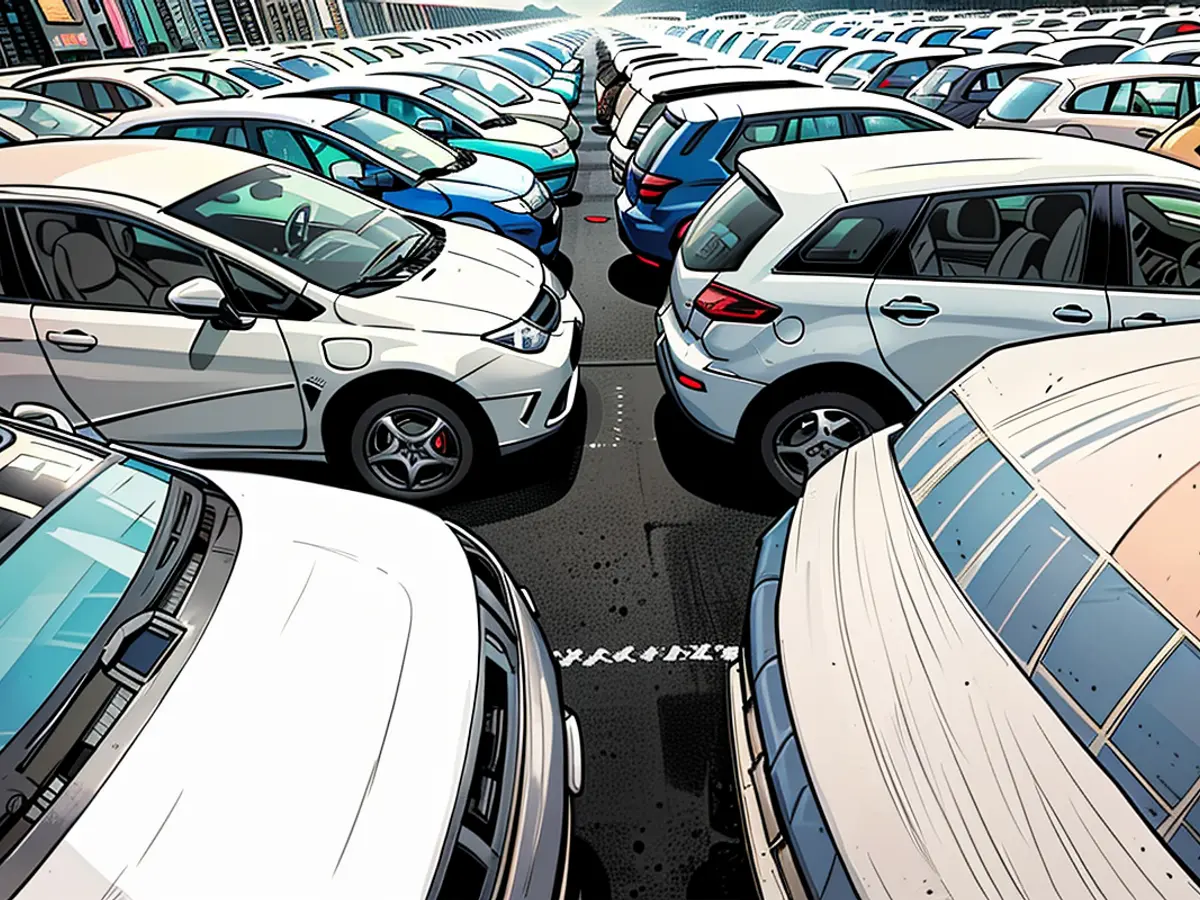O boom do carro elétrico na China está fazendo os fabricantes alemães suar
Um desenvolvimento na China está prejudicando os fabricantes de automóveis alemães: as vendas de veículos elétricos e híbridos estão disparando, enquanto a demanda por motores a combustão está em declínio. Isso beneficia especialmente os provedores chineses. A Volkswagen, a Mercedes e outras estão preocupadas.
O motor a combustão está perdendo rapidamente sua importância na China. Em 2020, 94% de todos os novos carros eram movidos por combustíveis convencionais como gasolina ou diesel. No primeiro semestre de 2024, essa figura caiu para apenas 59%. Isso é comprovado pelas figuras de registro do especialista em dados automotivos Marklines, obtidas pelo "Handelsblatt".
No primeiro semestre deste ano, as vendas de motores a combustão caíram 12% ou 775.000 unidades. Enquanto isso, as vendas de veículos elétricos e parcialmente elétricos aumentaram 38% ou 1,1 milhão de unidades. Em julho, de acordo com a Associação Automobilística da China (CPCA), foram entregues mais veículos elétricos e híbridos plug-in do que carros a diesel e a gasolina puros pela primeira vez.
Essa mudança drástica está causando quedas significativas nas vendas, receitas e lucros de fabricantes ocidentais como Volkswagen, Mercedes-Benz, GM e Honda. "Estamos claramente vendo uma deslocação dos sistemas de propulsão convencionais", explicou Jan Burgard, diretor da consultoria automotiva Berylls by Alix Partners. Com o aumento paralelo da participação de veículos elétricos na China, "a dominação dos provedores domésticos está crescendo". A principal razão parece ser a superioridade tecnológica de provedores chineses como BYD, Geely ou Li Auto em relação aos seus competidores ocidentais em motores elétricos e painéis de instrumentos digitais. Como resultado, a participação de mercado combinada dos provedores chineses aumentou de 33% para 52% desde 2020. As corporações alemãs perderam quase seis pontos percentuais, e as japonesas, nove, de acordo com o "Handelsblatt".
Vendas de motores a combustão "embelezam" o balanço por muito tempo
A indústria automotiva alemã tem lacked competitive electric cars in China in recent years. This could be easily covered up by the high sales figures of vehicles with combustion engines. However, with the now collapsing gasoline business, the situation is becoming critical, especially for mass producers like Volkswagen.
Europe's largest automaker is set to earn around three billion euros less this year alone with its two local joint venture companies, SAIC and FAW, compared to 2018. At that time, the joint ventures still generated an operating profit of over 4.6 billion euros. In the first half of 2024, it was not even one billion euros - and that's 350 million euros less than the previous year. Sales have simply collapsed. Since 2020, the core brand VW has lost a sales volume of more than 430,000 units. And it's still going downhill. In the first half of the year, deliveries fell by a further four percent to 931,000 units. Across all sub-brands, the market share of the Volkswagen Group in China has fallen from 19% to 14% in just over four years.
In Germany, however, combustion engines are experiencing a revival. There are even discussions about postponing the ban on new registrations of combustion engines in the EU, which is set to come into effect in 2035. In China, however, the reality is quite different. This is also due to tax incentives for electric cars. In many megacities, there is a limited number of license plates. The waiting times for electric cars are shorter than for combustion engines, giving them a clear advantage. Since April, there has also been a state subsidy for electric cars, which is set to be doubled to 20,000 yuan (around 2,550 euros) soon, according to the "Handelsblatt".
Even another German flagship, Mercedes-Benz, is now struggling in China. As the company primarily operates in the premium and luxury segments, its business had been doing quite well so far. However, in the first half of the year, there was a 10% drop - 352,000 vehicles were sold, according to the Handelsblatt. The pro-rata result from the joint venture with the Chinese state-owned company BAIC even shrank by 15% to 645 million euros compared to the previous year. Particularly concerning is the number of imported sedans and SUVs, which decreased by nearly a quarter, from around 80,000 to 62,000 units.
The struggle for Mercedes-Benz in China's premium market is likely to continue, as the shift towards electric vehicles is expected to intensify. Chinese providers like BYD and Geely, with their technological advances, are expected to further increase their market share.
The declining demand for combustion engines in China is not just affecting German manufacturers like Volkswagen and Mercedes-Benz, but also Japanese corporations such as Honda, as they struggle to compete with the technological superiority of Chinese providers.








